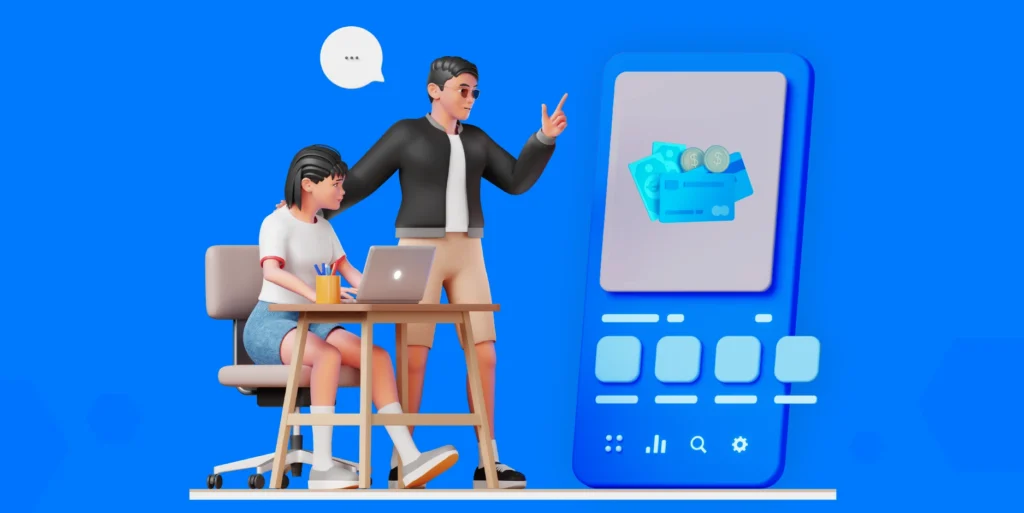Missing Safety/Privacy Feature in P2P Apps

Today, we are going to answer the most trending question on the internet,
“Which Of The Following Safety And Privacy Features Is Not Included In A P2P App Or Service?”
The options are –
- A user PIN
- Opt-out of data sharing
- Transfer to digital lockbox until the receiver uses a PIN to open it
- Verification of payment amount before sending
The answer is –
Option B. Opt-out of data sharing is not included in a P2P app or service.
Yes, you can’t opt out of data sharing when using a peer-to-peer app or service. Does that make this feature less important while using a P2P App? No, data sharing should always be a priority of P2P App providers, allowing users to have better control over their personal information.
In this blog, we will discuss the role and importance of opt-out data sharing in P2P transactions and services, despite its non-inclusion in the safety and privacy features. So, let’s get started!
What Is Opt-out of Data Sharing?
It is no secret how every website you visit collects and processes user data. However, you can opt-in or opt-out to have better control over their sensitive data.
The opt-out of data sharing means that your personal data can be collected by anyone, at any time and by any means. It can further be processed until you restrict them to further processing your personal information.
Is There a Need for Opt-out Data Sharing in P2P App?
An opt-out of data sharing is essential for P2P Apps as it helps address privacy concerns. This option allows users to have balanced control over their data, such as how it is being shared and to whom it is being shared.
An opt-out option allows users to decline or withdraw their consent for data collection or use. It can enhance user privacy, strengthen data security, and build user trust.
#1 Enhancing User Privacy
Opting out of data sharing can enhance user privacy by giving users more control over their personal information. User privacy is the right to decide what, how, and to whom one’s personal information is shared.
By providing an opt-out option, data collectors can respect user privacy and allow users to exercise their right to informational self-determination. An opt-out option can also prevent unwanted or intrusive data collection or use, such as targeted advertising, behavioral profiling, or third-party sharing.
#2 Strengthening Data Security
The option can strengthen data security by reducing the amount and scope of data collected and stored. Data security refers to offering protection from unauthorized access, modification, use, or destruction.
By providing an opt-out option, data collectors can minimize the data they collect and store, and thus reduce the potential risks of data breaches, leaks, or losses. An opt-out option can also limit the exposure and vulnerability of data to hackers, attackers, or malicious actors.
#3 Building User Trust
Opt-out data-sharing options can help build trust among users by demonstrating transparency, accountability, and responsibility. User trust is the confidence and expectation that data collectors will handle data in a fair, ethical, and lawful manner.
By providing an opt-out option, data collectors can show that they value user trust and respect user preferences. An opt-out option can also foster a positive and mutually beneficial relationship between data collectors and data subjects, and enhance user loyalty and satisfaction.
What Are Privacy Concerns Surrounding Data Sharing?
Whenever we use a traditional P2P App, we often share our data with other participants. While we do it unintentionally, it still poses a privacy threat.
However, it is essential to share data to some extent for seamless communication. But there are some serious consequences if it’s beyond the limit.
While using a P2P app, many users remain unaware of their data being shared, to whom it’s being shared, and how they will use it.
How to Overcome Challenges in Implementing Opt-out Data Sharing Option?
While opt-out data sharing is essential for P2P App, its implementation poses several challenges. Both data collectors and users need to strike a balance between ensuring extensive privacy and maintaining the P2P platform’s functionalities.
- Build a data ecosystem that works together: Use common formats and protocols to make data sharing easier and wider.
- Share data that is more complete and detailed: Give value-based care participants data that is complete, correct, and consistent to show a more holistic view of a patient or population.
- Use data collection and use to promote health equality: Collect and share data to find and solve health inequalities and obstacles to care outside the clinical setting, while keeping data transparent, proper, and private.
- Share data that is timely, relevant, and useful: Share data and insights that are focused and helpful early, often, and in easy ways to improve care.
- Share data methods, calculations, and context clearly and easily: Share information on how and what data was obtained to build trust among value-based care participants in the data they get, use, and by which performance is evaluated.
The Future of Opt-out Data Sharing in P2P Services
Most P2P App providers often rely on user data to provide personalized and efficient experiences. However, user data is also a valuable asset that can be shared or sold to third parties, such as advertisers, analytics providers, or other businesses. This raises privacy concerns for users who may not be aware of or consent to such data-sharing practices.
The future of Opt-out data sharing in P2P services seems promising and we expect many regulators to make it a mandatory feature.
However, opt-out mechanisms are often required by privacy laws, such as the California Consumer Privacy Act (CCPA) or the General Data Protection Regulation (GDPR), which give users the right to control their personal information.
However, opt-out mechanisms are not always easy to use, clear, or effective. Some future challenges include:
- Finding and accessing the opt-out options may be hidden, or confusing.
- Understanding the consequences and trade-offs of opting out, which may affect the quality or availability of the service.
- Trusting that the opt-out requests are honored and enforced by the service providers and the third parties.
The future of opt-out data sharing in P2P services depends on how these challenges are addressed and how users exercise their privacy rights. Some possible scenarios are:
- Opt-out becomes the default or the norm, as users become more aware and concerned about their data privacy and demand more transparency and control from the service providers.
- Opt-out becomes obsolete or irrelevant, as users become more accustomed and indifferent to data sharing and accept it as a necessary or beneficial part of the service.
- Opt-out becomes more nuanced or customized, as users have more options and preferences to choose what, how, and with whom they share their data, depending on the context and the value they receive.
Conclusion
As the concerns over privacy continue to grow, P2P App providers must adapt to implement opt-out of data sharing to meet user expectations. Overall, including an opt-out data-sharing option is just one step closer to a more privacy-oriented
As data privacy concerns continue to grow, P2P platforms must incorporate opt-out of data sharing options to meet user expectations. Giving users a choice to not share their data is only a part of making P2P apps and services more respectful of privacy.





